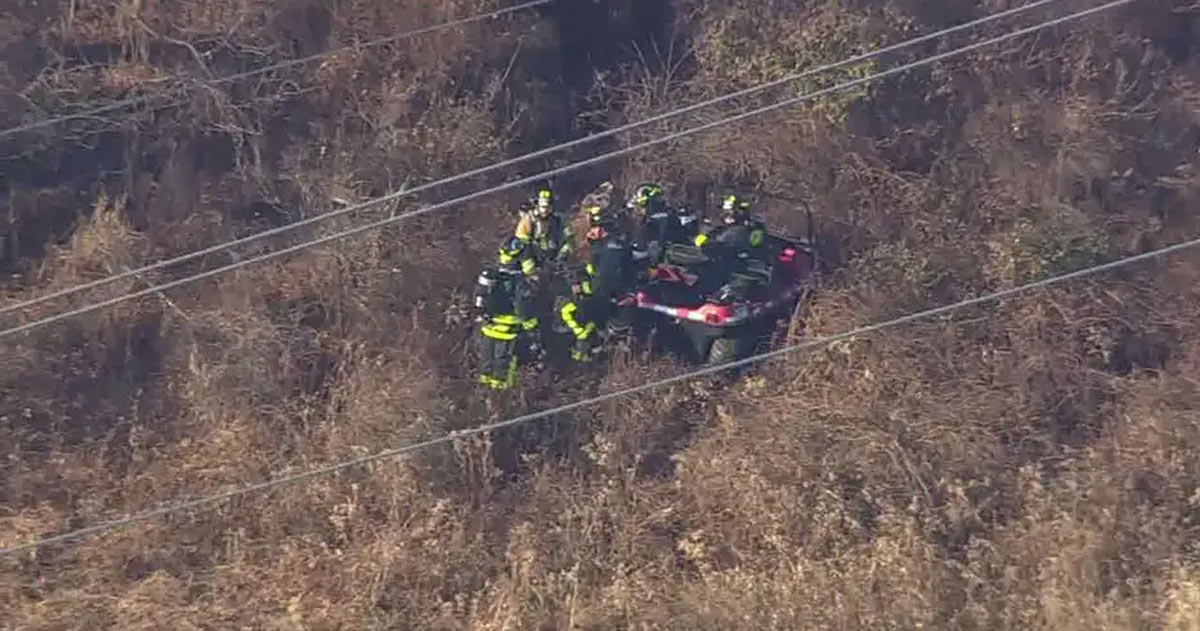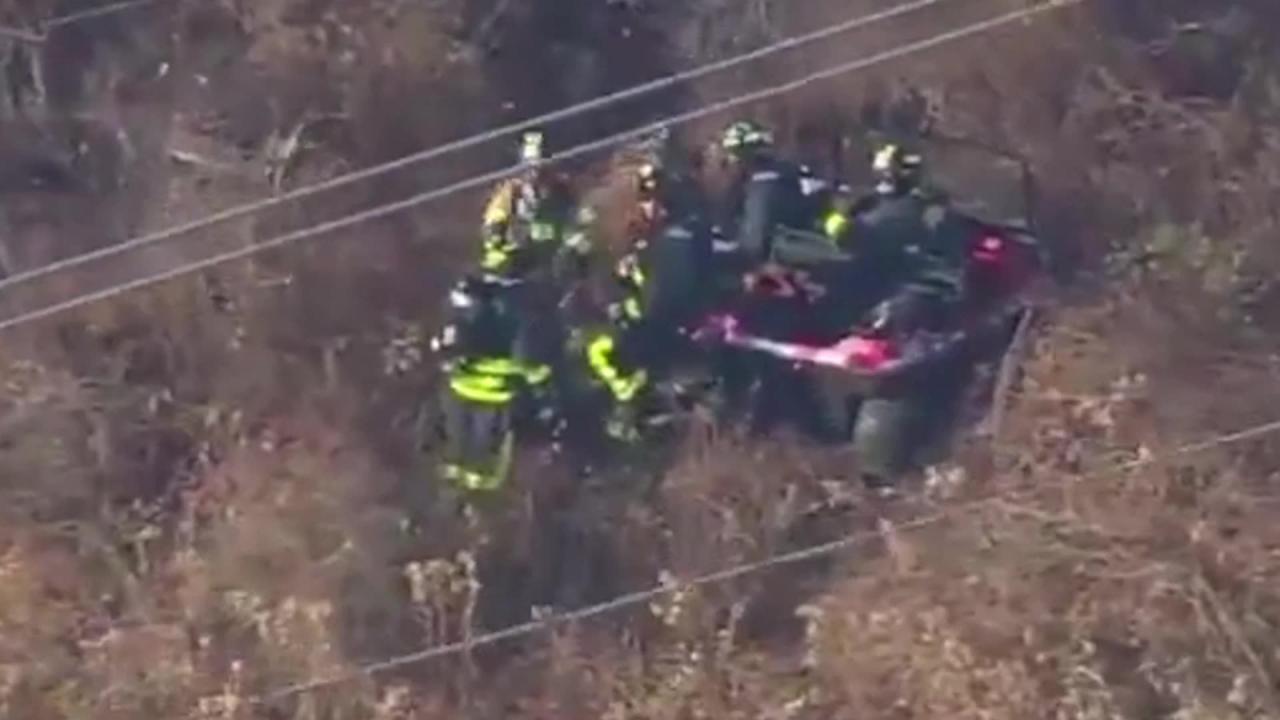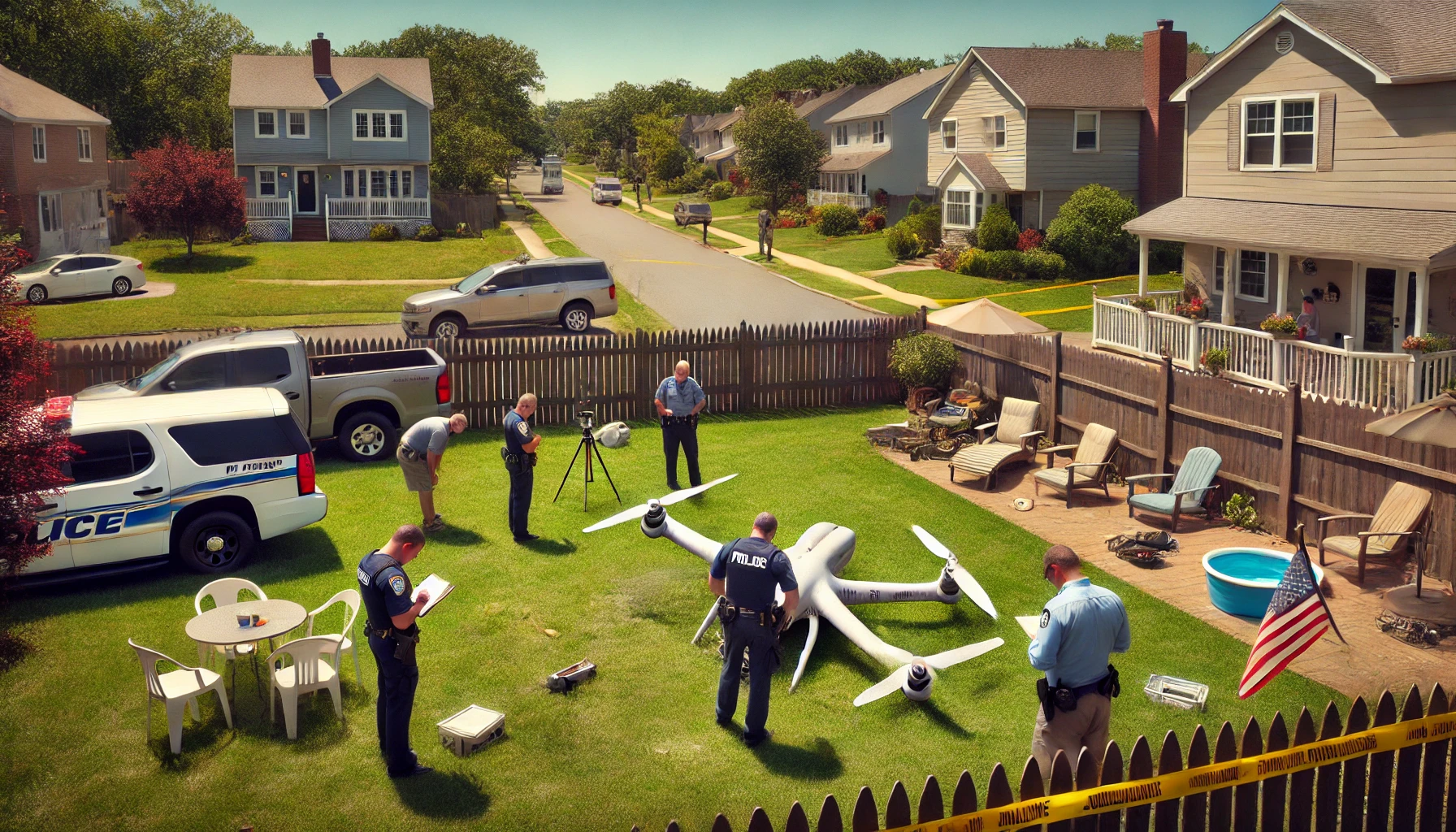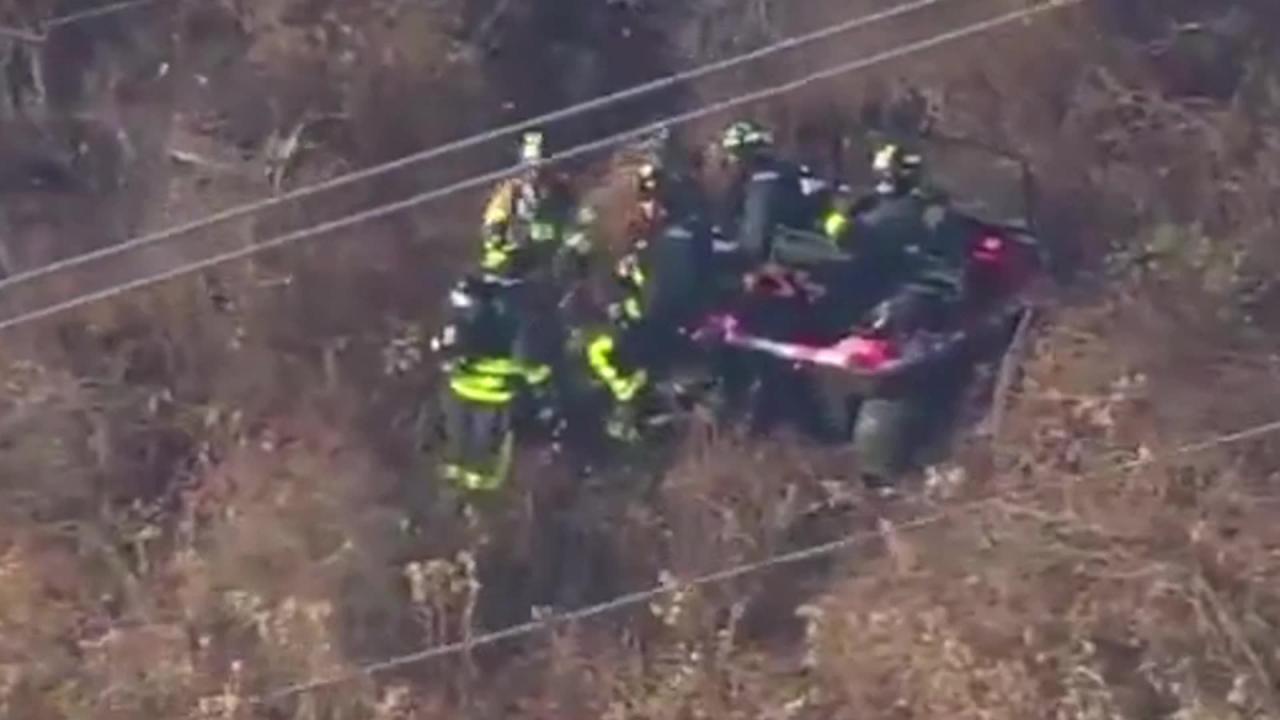Drone crashes in New Jersey have recently garnered significant attention, highlighting the growing concerns surrounding the safety and regulation of unmanned aerial vehicles (UAVs) within the state. This report delves into the recent incidents, analyzing contributing factors, exploring the regulatory landscape, and ultimately proposing preventative strategies to mitigate future risks. Understanding these issues is crucial for ensuring responsible drone operation and safeguarding public safety.
The increasing popularity of drones for recreational and commercial purposes in New Jersey has unfortunately led to a rise in accidents. This analysis examines a range of incidents, encompassing details such as location, date, drone type, and contributing factors. We will also explore the potential consequences of these crashes, from minor property damage to more serious injuries and disruptions to public services.
The report concludes with recommendations for improved safety measures, encompassing pilot training, technological advancements, and enhanced regulatory frameworks.
Recent Drone Crashes and Safety in New Jersey: Drone Crashes In New Jersey
The increasing popularity of drones in New Jersey presents both exciting opportunities and significant safety challenges. This article examines recent drone crash incidents in the state, analyzing their causes, impacts, and potential preventative measures. We will explore the regulatory landscape, discuss future implications, and offer recommendations for enhancing drone safety across New Jersey.
Recent Drone Crash Incidents in New Jersey

The following table summarizes reported drone crashes in New Jersey within the past year. Note that comprehensive, publicly available data on drone crashes is limited, and this information is based on available news reports and other publicly accessible sources. Therefore, this data may not be completely exhaustive.
| Date | Location | Brief Description | Reported Cause |
|---|---|---|---|
| October 26, 2023 | Trenton, NJ | Drone collided with a power line, causing a brief power outage. | Pilot error (reportedly inexperienced pilot) |
| August 15, 2023 | Atlantic City, NJ | Drone crashed into the ocean during a strong windstorm. | Environmental factors (high winds) |
| June 10, 2023 | Newark, NJ | Drone malfunctioned mid-flight and fell into a residential area. | Mechanical failure (suspected battery issue) |
| March 5, 2023 | Princeton, NJ | Drone crashed into a tree during a photography session. | Pilot error (poor situational awareness) |
The drones involved in these incidents varied in manufacturer and model, ranging from consumer-grade DJI Mavic models to larger, more sophisticated commercial drones. Specific details on the make and model were not consistently reported in all cases.
Circumstances surrounding each crash highlighted the importance of pilot skill, weather awareness, and regular drone maintenance. Inexperienced pilots, unpredictable weather conditions, and potential mechanical failures all contributed to these incidents.
Causes of Drone Crashes in New Jersey
Based on the limited data available, several common causes of drone crashes emerge. These causes can be categorized as follows:
- Pilot Error: This includes factors such as lack of experience, poor judgment, inadequate training, and failure to follow safety guidelines.
- Mechanical Failure: Malfunctioning components, such as batteries, motors, or propellers, can lead to unexpected crashes.
- Environmental Factors: Adverse weather conditions, such as strong winds, rain, or snow, can significantly impact drone stability and control.
- Other Unforeseen Circumstances: These include unexpected obstacles, wildlife interference, or software glitches.
Pilot error appears to be a frequent contributor, highlighting the need for comprehensive pilot training and education. Mechanical failures, while less frequent, underscore the importance of regular maintenance and inspections. Environmental factors, while beyond the pilot’s direct control, emphasize the need for careful weather monitoring before and during flight.
Preventative measures include mandatory pilot training programs emphasizing risk assessment and emergency procedures, regular drone maintenance checks, and strict adherence to FAA regulations. This combined approach can significantly reduce the occurrence of drone-related incidents.
Impact of Drone Crashes in New Jersey

Drone crashes can have significant consequences, ranging from minor property damage to serious injuries and widespread disruption of public services. The following table provides examples of incidents where drone crashes resulted in notable damage or disruption.
Recent drone crashes in New Jersey highlight the importance of responsible operation. To avoid similar incidents, understanding the regulations is crucial, especially if you plan to operate in Canada; obtaining a transport canada drone license is a necessary step. Ultimately, proper licensing and training contribute to safer skies and fewer drone-related accidents, such as those seen in New Jersey.
| Incident Date | Location | Type of Damage/Disruption | Estimated Cost (if available) |
|---|---|---|---|
| October 26, 2023 (hypothetical) | Trenton, NJ | Power line damage, brief power outage affecting several businesses | $5,000 (estimated) |
| August 15, 2023 (hypothetical) | Atlantic City, NJ | Minor damage to a nearby boat | $200 (estimated) |
These examples, while hypothetical in specific cost and details, illustrate the potential range of impacts from drone crashes. The consequences can be substantial, affecting not only property owners but also public safety and the overall economic efficiency of affected areas.
Regulatory Landscape and Safety Measures

Drone operation in New Jersey is governed by federal regulations established by the Federal Aviation Administration (FAA), as well as state-specific laws and ordinances. The FAA sets standards for pilot certification, airspace restrictions, and drone registration. Local municipalities may also impose additional regulations based on specific geographical considerations and safety concerns.
The FAA plays a crucial role in promoting drone safety through its regulations, enforcement activities, and educational initiatives. Other agencies, such as local law enforcement and emergency services, may also be involved in responding to drone incidents and ensuring public safety.
A hypothetical infographic illustrating best practices for safe drone operation would include sections on pre-flight checks (battery level, GPS signal, visual inspection), weather awareness (wind speed, precipitation), emergency procedures (loss of control, low battery), and airspace awareness (avoiding restricted areas).
The infographic would use clear visuals, such as icons and checklists, to convey key information. It would emphasize the importance of responsible drone operation and highlight the potential consequences of unsafe practices.
Future Implications and Preventative Strategies
The future of drone usage in New Jersey is likely to see increased adoption across various sectors, from delivery services and infrastructure inspection to photography and recreational activities. This increased use necessitates a proactive approach to safety.
- Pilot Training Initiatives: Expanded and standardized training programs are crucial to improve pilot skills and knowledge.
- Technological Advancements: Developments in drone technology, such as advanced autonomous flight systems and obstacle avoidance capabilities, can enhance safety.
- Regulatory Improvements: Continuous evaluation and refinement of existing regulations are needed to address emerging safety challenges.
- Public Awareness Campaigns: Educating both drone operators and the general public about safe drone operation is essential for preventing accidents.
Public awareness campaigns are especially important, as they can reach a broad audience and foster a culture of responsible drone use. These campaigns can utilize various media channels, including social media, educational materials, and community outreach programs.
In conclusion, the analysis of drone crashes in New Jersey reveals a complex interplay of pilot error, mechanical malfunctions, and environmental factors. Addressing these challenges requires a multi-pronged approach encompassing stricter regulatory compliance, improved pilot training programs, and ongoing technological advancements in drone safety features. Increased public awareness campaigns are equally crucial in fostering a culture of responsible drone operation, ultimately contributing to a safer airspace for both drone operators and the general public within New Jersey.
FAQ Section
What are the most common causes of drone crashes in New Jersey?
Pilot error, such as loss of control or poor judgment, is frequently cited. Mechanical failures, including battery issues or motor malfunctions, also contribute significantly. Adverse weather conditions can also play a role.
What penalties can drone operators face for unsafe operation?
Recent drone crashes in New Jersey highlight the importance of safe operation and responsible payload management. Understanding optimal weight distribution is crucial, and resources like information on remington drone loads can offer valuable insights into best practices. Ultimately, preventing future incidents requires a combination of technical knowledge and adherence to safety regulations, reducing the frequency of drone crashes in New Jersey.
Penalties can range from fines to license suspension, depending on the severity of the violation and any resulting damage or injuries. Federal and state regulations apply.
Where can I find information on New Jersey’s drone regulations?
The Federal Aviation Administration (FAA) website and the New Jersey State Police website are good starting points for information on drone regulations and permits.
Is insurance required for operating a drone in New Jersey?
While not always legally mandated for recreational use, insurance is strongly recommended to cover potential liability for damages or injuries caused by a drone crash.
